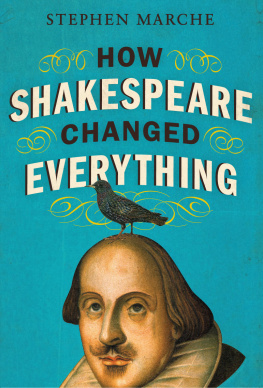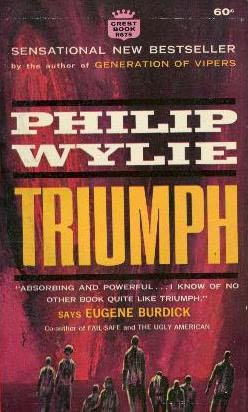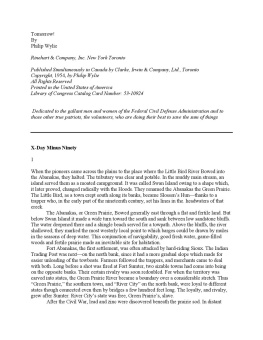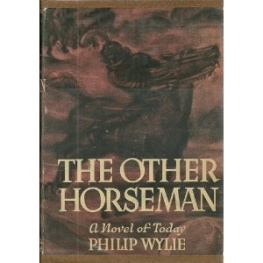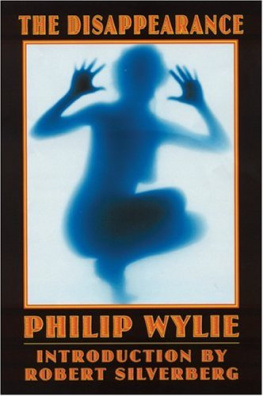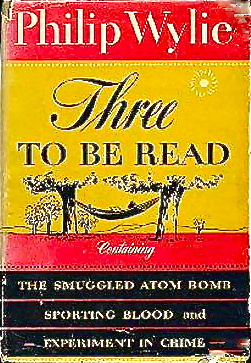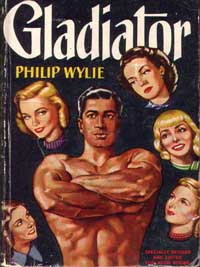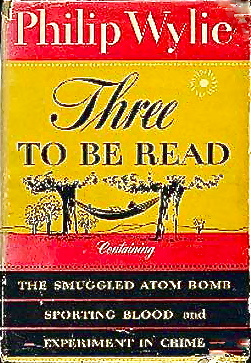Contents
We hope you enjoyed reading this Simon & Schuster eBook.
Join our mailing list and get updates on new releases, deals, bonus content and other great books from Simon & Schuster.
C LICK H ERE T O S IGN U P
or visit us online to sign up at
eBookNews.SimonandSchuster.com
Thank you for downloading this Simon & Schuster eBook.
Join our mailing list and get updates on new releases, deals, bonus content and other great books from Simon & Schuster.
C LICK H ERE T O S IGN U P
or visit us online to sign up at
eBookNews.SimonandSchuster.com
ALSO BY STEPHEN MARCHE
Love and the Mess Were In
How Shakespeare Changed Everything
Shining at the Bottom of the Sea
Raymond + Hannah

Simon & Schuster
1230 Avenue of the Americas
New York, NY 10020
www.SimonandSchuster.com
This book is a work of fiction.
Any references to historical events, real people, or real places are used fictitiously.
Other names, characters, places, and events are products of the authors imagination, and any resemblance to actual events or places or persons, living or dead, is entirely coincidental.
Copyright 2015 by Stephen Marche
All rights reserved, including the right to reproduce this book or portions thereof in any form whatsoever.
For information, address Simon & Schuster Subsidiary Rights Department, 1230 Avenue of the Americas, New York, NY 10020.
First Simon & Schuster hardcover edition February 2015
SIMON & SCHUSTER and colophon are registered trademarks of Simon & Schuster, Inc.
The Simon & Schuster Speakers Bureau can bring authors to your live event. For more information or to book an event, contact the Simon & Schuster Speakers Bureau at 1-866-248-3049 or visit our website at www.simonspeakers.com.
Interior design by Jill Putorti
Library of Congress Cataloging-in-Publication Data is available.
ISBN 978-1-4767-3081-3
ISBN 978-1-4767-3083-7 (ebook)
In memory of Sunny Marche
All money is a matter of belief.
ADAM SMITH
ONE
H unters found his body naked in the snow. Peter and Samuel Seguin, Cree brothers who drove from Tamaskan to North Lake every February to shoot moose, stumbled on Ben Wylie in a small clearing of aspens at the end of an abandoned lumber road, his corpse encircled by curiously hesitant ravens. We were all, like, pow, because he was naked and it was cold and he was just a man to us. We didnt know what it was that we were looking at, Samuel Seguin told the reporter from Bloomberg. Only after they had delivered up the body would the brothers learn that the man in the snow, far from being nobody, was the eighth-richest person in the world. Curled naked in the killing cold lay twenty-seven billion dollars.
* * *
The Seguins could never have recognized Ben Wylie. Through discipline and money, he had willed himself into irrelevance. By 2009, his photograph hadnt appeared in a newspaper for twenty-one years and business pages rarely feature stories about the Wylie companies despite their enormous size. Wealth of the Wylie magnitude, money on the scale of small governments fashioned from the profitable organization of hundreds of thousands of people, can grant itself the power of invisibility, fading into the fabric of everyday life. Capitalism can be good, proper, brutal fun, the biggest schoolyard game in the world. Some kids take all the candy and some kids lose eyes and other kids run home crying. But WylieCorp is too big to be fun. Even the death of the owner warranted, in the judgment of the worlds capital-allotment, less than a half-point drop in its stock price.
The obituarists had to splay their quarter pages with Bens grainy appearance at a shareholders meeting in 1988more like Bigfoot in the swamps than a human being. The picture has always been a favorite of newspaper editors, particularly the older, more showoffishly jaded ones, with Ben in well-worn budget sneakers and a suit seemingly borrowed from a middle-management uncle. The most famous photograph of Bens grandfather, Dale Wylie, caught him stooping for a sixpence on Fleet Street the day he purchased The Record of London in 1964at that time the largest media deal in history. Bens father, George Wylie, appeared at a public offering of bonds on the NYSE with a four-stitch tear down the back seam of his jacket. Bens 1988 picture fit the well-established pattern of the legendary penny-pinching Wylies; he looked exactly like the scion of the worlds cheapest billionaires.
The hustled, deadlined world tells only the stories it has told before. Rather than the mystery of Bens death, the magical scene in the snow, the frost-shrouded, fetally coiled symbol revealed in the openness of a primeval clearing, the reporters ran with drudgery, the family pattern, the inheritance of melodramatic restraint. He died in a freak hunting accident, Bloomberg mentioned before reciting the list of companies he had ownedanother broken family remarkable for their garland of zeroes. The 0.0000001 percent.
Money can turn into everything but we can only turn into ourselves.
* * *
I met Ben Wylie in the aftermath of the 2008 market crash, as the value of the world seemed to have lowered forever, and crisis , as a term, was beginning to lose its ancient meaning, smoothing into an ordinary condition. I met him once, although I had known him, or believed that I had known him, my entire life.
The Wylies own a cottage near North Lake, a town in northern Alberta brimming with quiet judgment and rude health and stuck economically between lumbering and resorts, as if it cant quite make up its mind whether to frolic in the wilderness or to hack it to smithereens. The Canadian government, in the final land bonanza of 1917, granted Dale Wylie and his brother, Max, a complete section along the Peace River, and in 1937, Dale assumed eight thousand acres on the north side of North Lake, land so scarred by clear-cutting for the lumber mill in Tamaskan that the locals branded Dale a rich American idiot for the outlay of twenty dollars. Now, regrown into a private wilderness, the Wylie property, encompassing three lakes, amounts to a province within a province.
The Wylie cottage itself lacks ambition, at least by the standards of the pleasure domes to weekend warriordom which the Kublai Khans of our moment tend to fantasize for themselves. No Sea-doos or bouncing water trampolines here. Just a small dock for the floatplane, and two canoes by the water, birch bark canoes handcrafted by a local tribe of Dene. A Gothic fireplace, imported in blocks from a German castle, dominates the cottage interior, but otherwise the place is an ordinary Canadian cottagemaybe cleaner than most since a family in the area served as caretakers, trimming the edges of their lawns in the summer and shoveling the Alpine roof of billowy snowdrifts in winter, then in the spring cracking the windows against the cozy atavism of rot. For these infrequent services the local family, the Cabots, earned several thousand dollars a year, even if, that year, the Wylies never bothered to open the place. It was a good deal for that family.
I should know because that family was mine. North Lake was my home. My name is Jamie Cabot. It remains Jamie no matter what I do. I have tried to turn myself into James twice, first when I went away to university, and again when I went away to New York. Though I asserted my Jamesness both times, I inevitably drifted back to Jamie. Now I am resigned. Maybe when Im sixty, it will change itself to Jim. My grandfather was a Jim Cabot, and one sweltering Depression day, he helped lay the foundation of the Wylies cottage between snorts of homemade rum and pineapple juice. Later my mother straightened the doilies on the arms of their sofas. During my childhood, the Wylie family had a vague otherworldliness. I recall, as one of my earliest memories, their floater plane circling overhead in a delicate maple-seed half helix and then skimming, skipping like a stone over the drab lake water. Even as a child, four or five years old, that machineso like a radio-operated toybred in me a sense of my remoteness, my status on the periphery of the world. There are still unnamed lakes in Canada, places marked with numbers because no one cares enough to entitle them. North Lake was such a place, a few random cottages strewn among the boulders and pines. Looking up into the pure overbearing sky at the elegant descending curve of the Wylie biplane, I knew I came from the north, the nothingness, the irrelevant truth.


